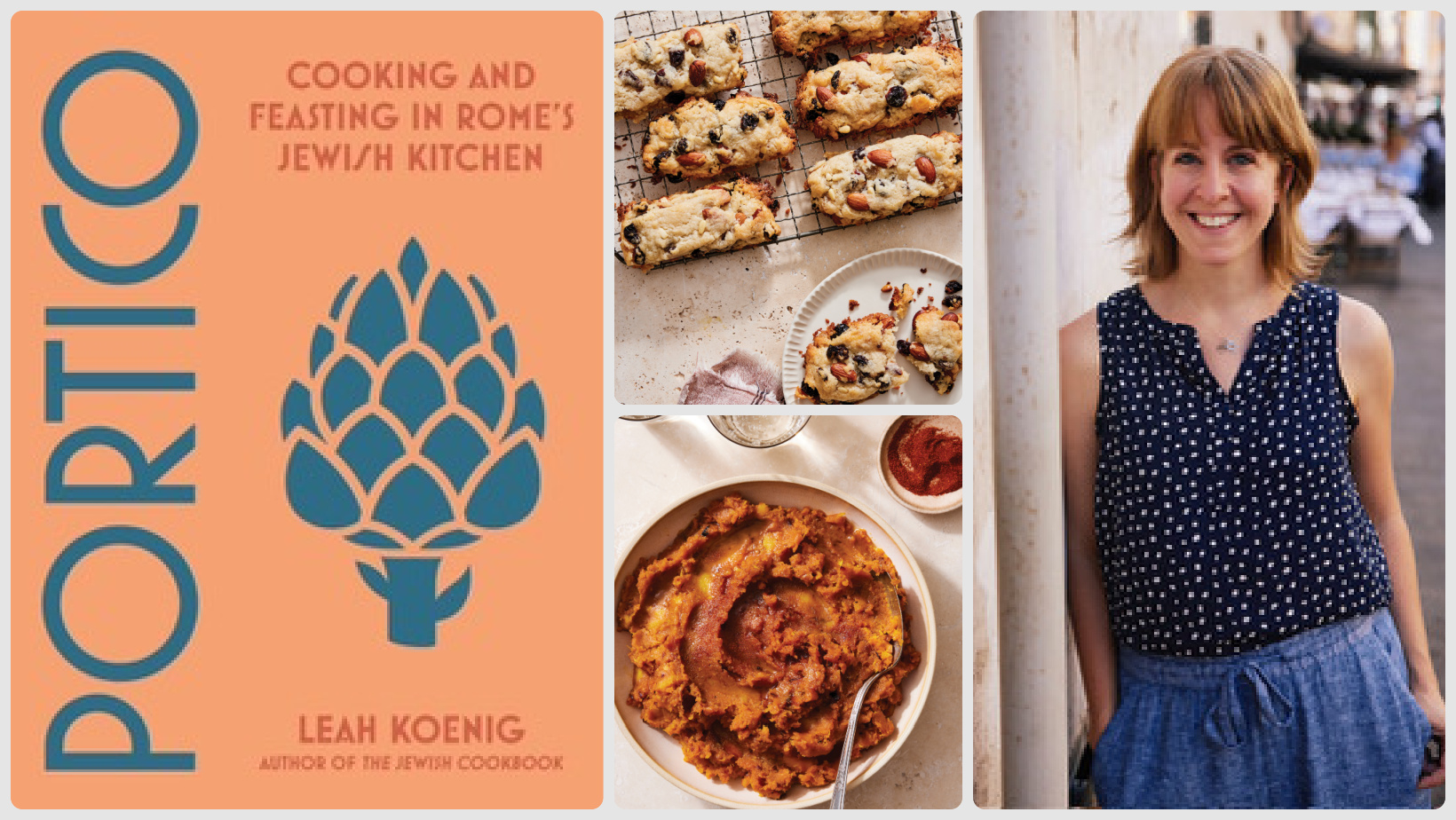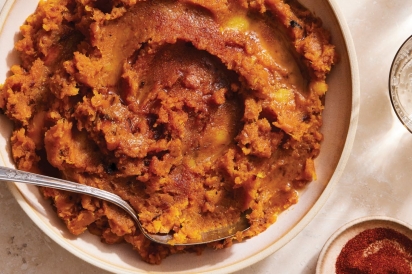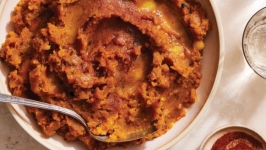Portico: Cooking and Feasting in Rome's Jewish Kitchen
“Welcome, I’m glad you are here.”
This is the sentiment Leah Koenig shares with readers and home cooks on nearly every page of her new cookbook Portico: Cooking and Feasting in Rome’s Jewish Kitchen. Koenig purposely titled the book “portico” in honor of the Portico d’Ottavia, an historically significant building on the outskirts of Rome’s Jewish Ghetto, and because of the word’s meaning: a portico is a porch, a place we say “come in,” a bridge between inside and out.
Koenig, the author of six other cookbooks, including the acclaimed The Jewish Cookbook and Modern Jewish Cooking, returns to Rome with Portico, the place that inspired her to explore global Jewish cuisine more than a decade ago.
Magically, this cookbook finds its way to the Delmarva community through a metaphorical portico. Each year, the Jewish Federation of Delaware allocates programming funds to Seaside Jewish Community with the goal of educating the broader community about Jewish history, culture, and traditions. As Seaside’s program committee contemplated how to put this year’s allocation to good use, a member asked, “Who doesn’t like food?” Sharing a meal is one way of communicating our humanity to one another. Because of the allocation and Seaside’s efforts, Koenig will travel to Sussex County in October to talk about Roman Jewish cuisine and demonstrate some of her recipes.
As we learn in Portico’s introduction, Ebraico-Romanesca, or Roman Jewish cuisine, draws from three distinct Jewish communities that have made Rome their home over the last 2000 years. As the recipes in Portico reveal, there is a sense of simplicity in both the ingredients and cooking methods, but the resulting flavors are contradictory in a very good way: they taste both pure and deeply complex; they are comforting yet at the same time elevated. The cuisine endured periods of extreme restriction due to anti-Semitic laws that limited access to quality ingredients and staples for the Jewish population.
A reliance on seasonal ingredients is evident in all sections of the book. Silky Marinated Zucchini, fried in olive oil then marinated in fresh herbs and vinegar, is layered in a dish that sits in wait for multiple uses: as an appetizer, a side dish, or layered with fresh mozzarella between two slices of rustic bread. Libyan Jewish-inspired Garlicy Pumpkin Spread marries the sweetness of fall squash and concentrated tomato flavor with the warmth from hot paprika and the sharpness of garlic.
Romanesco broccoli stars in a brothy stew dotted with ditalini pasta, seasoned with tomato and the optional addition of an anchovy or two, a nod to Ancient Roman flavors. Roasted Cippolini Onions or Fennel Gratin also capitalize on fall farmers market offerings.
The Onion Frittata has only four ingredients, again showing simplicity can be elevated, as onions are rendered golden and sweet as they slowly cook down in olive oil. Served solo, or room temperature between a wedge of Roman Flatbread, the thinner, chewier version of focaccia made without any oil, it is perfect item to take on the go.
For cool nights with family and friends, try Koenig’s Slow-Braised Beef Stew, where chunks of beef are simmered in wine and tomato sauce. In Rome, the dish is served over two courses: pasta tossed with sauce first, then the tender meat as an entrée.
The final chapter on sweets rounds out Koenig’s journey into Jewish Roman cuisine. Happily, some of the treats are only lightly sweet, like the Lemony Almond Cake dusted with a light coating of powdered sugar, or the once-baked Cinnamon Almond Cookies that resemble biscotti but are shorter and chewier than “traditional” biscotti. Raisin-studded Ricotta Cheesecake is popular in Rome’s Catholic community at Christmas time, and the Dried Fruit and Nut Bars, loaded with candied citrus, soaked dried cherries, pine nuts and almonds, made even more decadent with a splash of white wine in the batter, are perfect to wrap up for a fall hike, or to nibble with a cup of tea or coffee.
“Whether you have traveled to Rome a million times or planning to make your first trip, and whether or not you come from a Jewish background, I hope that reading and cooking your way through this book gives you the feeling of simultaneously being transported to Rome and coming home.” Indeed, Koenig is successful in doing just that.
Recipes and photos from ‘Portico: Cooking and Feasting in Rome's Jewish Kitchen’. Copyright © 2023 by Leah Koenig. Used with permission of the publisher, W.W. Norton & Company, Inc. All rights reserved.
EVENT DETAILS
Conversation and Cooking Demonstration with Leah Koenig, author of Portico: Cooking and Feasting in Rome's Jewish Kitchen
Sunday, October 22, 2023
2:00 p.m. – 3:30 p.m.
Lewes Public Library (in person and online)
Sponsored by Browseabout Books, Lewes Public Library, Seaside Jewish Community, Edible Delmarva
Portico: Cooking and Feasting in Rome’s Jewish Kitchen is available for purchase at Browseabout Books in Rehoboth Beach, online at www.browseaboutbooks.com, and by phone at (302) 226-2665. Browseabout will be selling books at the October event, and there is an opportunity for Koenig to sign and personalize the books.









